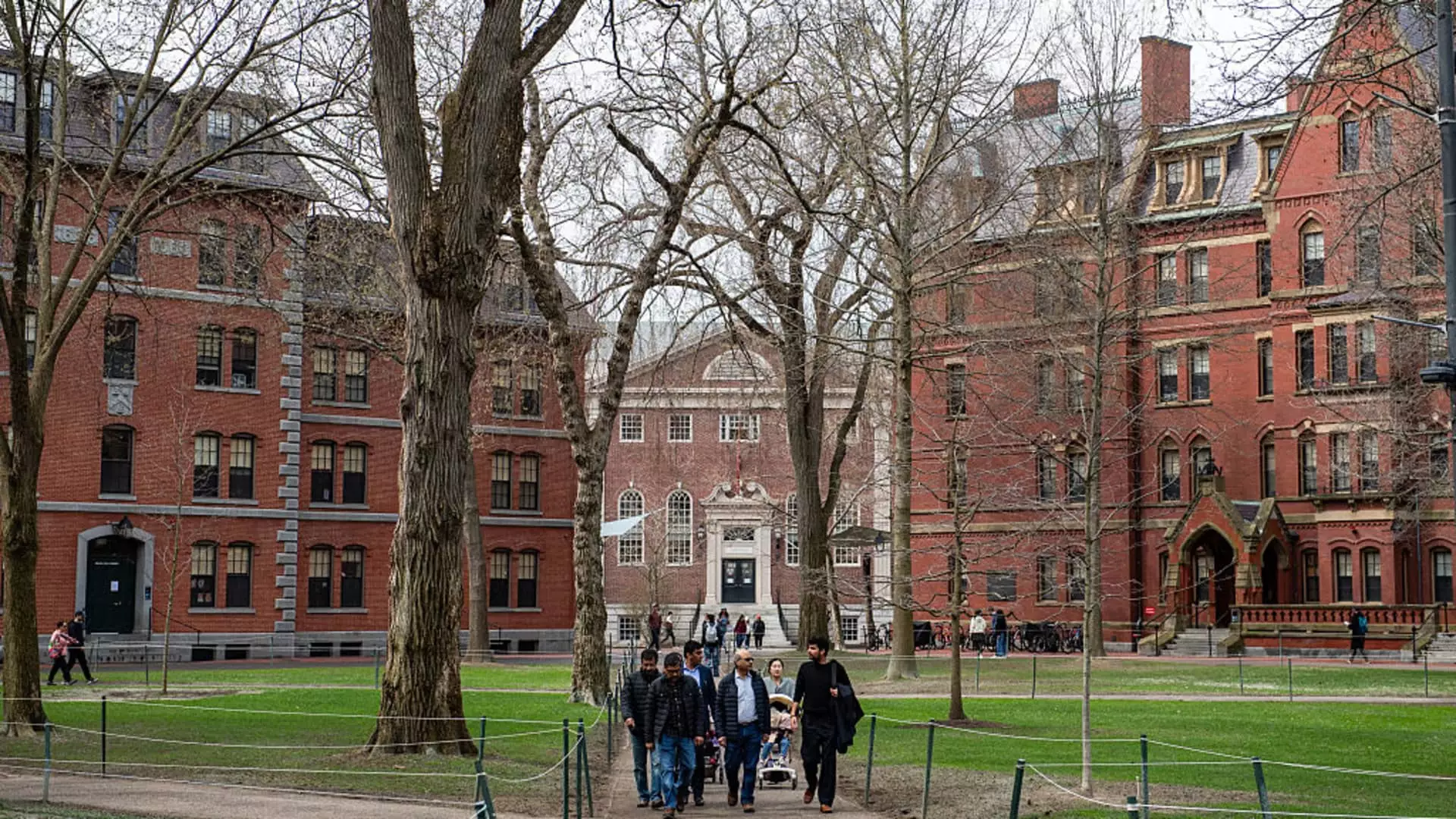The recent episode involving the White House’s letter to Harvard University raises alarming questions about governmental overreach and the intricate relationship between education and politics. Sent on April 11, this letter, which outlined a long list of demands, including the elimination of Diversity, Equity, and Inclusion (DEI) programs and ideological screenings for international students, was later deemed “unauthorized” according to sources reported by the New York Times. Although the contents were presented with an air of authoritative seriousness, the chaotic circumstances surrounding its dispatch expose a fraught landscape wherein educational institutions find themselves shackled by political maneuvering.
The reality is that a document laden with such sweeping demands cannot simply be typecast as a misguided error; it heralds a chilling shift in the expectations imposed upon academia. This is not an isolated incident but rather indicative of a broad ideological assault against institutions of higher learning. By insisting on the eradication of DEI programs, this letter reflects a disturbing trend where diversity of thought, experiences, and representation is being zeroed out from the educational fabric of our society. Such actions compromise the very essence of diversity—an essential ingredient in fostering critical thinking.
Political Theater at a Cost
What embellishes the narrative further is the baffling response from Harvard. Confronted with the ultimatum—essentially a political bludgeoning—the university opted to reject the demands, putting nearly $9 billion in federal funding in jeopardy. This stalemate represents more than just a clash of institutional wills; it demonstrates a dire consequence for students and academic freedom. In a landscape defined by growing bureaucratic control, the environmental and intellectual self-defense of universities becomes imperative.
The White House’s reaction, a vow to freeze approximately $2.2 billion in grants, underscores the pernicious nature of political theater. The contorted back-and-forth serves an ideological malevolence that often lacks transparency and publicly ignores the ramifications on the very students they’re purportedly aiming to protect. When institutions of higher learning are forced into this adversarial posture, the sanctity of education devolves into collateral damage, often without consideration of the real-world consequences on students and their futures.
Ideological Screening: A Slippery Slope
The idea of implementing ideological screenings for international students is particularly troubling and reflective of a broader assault on free thought. Such measures can lead to a culture of conformity, stifling the very debates and dialogues that academia thrives upon. The imposition of ideologically driven policies fosters an environment where fear supersedes academic curiosity. Higher education should be a sanctuary for diverse opinions, not a filtered echo chamber that preselects perspectives deemed “acceptable.”
The Biden administration must confront the ramifications of its actions seriously. The letter’s fallout offers insight into the depths of polarization in American politics, where ideologies clash, and educational integrity is put to the test. Without careful consideration, universities could become mere extensions of government ideology rather than bastions of free inquiry.
This unprecedented episode serves as a reminder; far from being an innocuous correspondence, it is a clarion call that resonates through the halls of academia and sends shockwaves through the student body that revere the autonomy and legacy of their institutions.

Leave a Reply